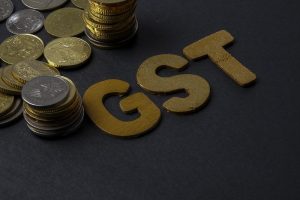
In another curious case of classification under the Goods and Services Tax (GST) regime, the cotton industry has approached North Block seeking clarity on taxation when purchases are made from unregistered entities or agriculturalists.
According to sources, “the cotton industry is currently in limbo due to overlapping provisions under GST laws regarding the purchase of raw materials. The Cotton Association has written to Union Finance Minister Nirmala Sitharaman, seeking clarity after facing tax demands that claim dues under the reverse charge mechanism when the buyer is a registered entity.”
The cotton industry asserts that it is not liable to pay GST when raw materials are purchased from unregistered entities and has challenged the tax demands, according to sources.
The issue
Under the GST system, cotton traders have certain benefits and responsibilities related to the reverse charge mechanism (RCM). When cotton is supplied by an agriculturalist (a farmer), the buyer, typically a registered trader or business, is liable to pay tax under the RCM. The agriculturalist is exempt from paying GST on the output supply.
In the initial years of GST implementation (2017–2019), businesses could procure goods from unregistered dealers without triggering the reverse charge. However, after the exemption period ended, the RCM was extended to purchases from unregistered dealers.
After facing tax demands, industry players approached the Gujarat High Court for clarity. The central issue was whether buyers could benefit from purchasing from unregistered dealers, given the RCM’s applicability to cotton procurement from agriculturists.
In May 2024, Justices Bhargava D. Karia and Niral R. Mehta of the Gujarat High Court ruled that tax must be paid under the RCM even when goods are procured from unregistered dealers. Consequently, the procurement of cotton became taxable, despite the exemption notification issued in the broader public interest, according to the Court’s decision.
Challenging the order, the industry filed a Special Leave Petition (SLP) in the Supreme Court. On September 6, Justices Sanjiv Khanna and Sanjay Kumar disposed of the SLP. While doing so, the Supreme Court held that the taxpayer retains the right to appeal against the order of adjudicating authorities on issues not addressed by the Gujarat High Court. This allows the taxpayer to present arguments on both factual and legal points, especially regarding unresolved aspects of the case.
With this development, the industry is preparing to appeal the tax demands before the commissioner of appeals at the tax authorities, sources added.
Source: CNBC TV 18


